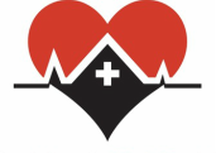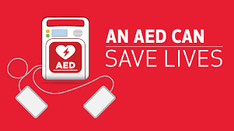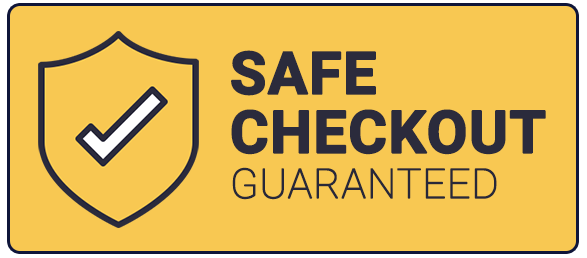MANAGING AN ALLERGIC REACTIONThe Centers for Disease Control and Prevention (CDC) reports that over 50 million Americans suffer from allergies each year. Allergies are caused by an overactive immune system. Various reactions to allergies can occur due to bee stings, spending time around house pets, increasing pollen in the air and spending more time outside, or simply consuming peanuts. However, no matter how severe the allergic reaction, it is critical to address the problem as quickly as possible.
The first step in handling an allergic reaction is identifying symptoms and understanding any predispositions that an individual may have towards certain allergens. With this information and within the First Aid classes we provide at Help-A-Heart CPR, we will provide you with everything you need to know to properly handle an allergic reaction. Gain the necessary knowledge to stay safe in the face of allergies with our information below and gain the experience to turn your knowledge into action by enrolling in our Basic First Aid course. WHAT CAUSES ALLERGIC REACTIONS? The allergic reaction is synergy of an allergen and the body’s response to it. There are three primary types of allergies. The first are ingested allergies, which occur only when an allergen is ingested orally or intravenously. A few common allergens in this category include peanuts, eggs, gluten, certain types of fruit, and some medications, including penicillin. The second are contact allergies, which occur when an allergen comes into contact with the skin and causes swelling or irritation. A few common allergens in this category include soaps, detergents, hair dye, and latex. The final and most widespread type of allergies are inhaled allergies, which occur when an individual breathes in an allergen. Common allergens in this category include pollen and pet dander. WHAT IS AN ALLERGIC REACTION? The allergic reaction or the “overreaction” is essentially an overproduction of proteins called Immunoglobulin E (IgE) antibodies, which the body uses to try to suppress the allergen. When combined with the allergen itself, these antibodies then create histamine. Histamine is the substance responsible for the wide range of symptoms that can occur in body when an allergic reaction occurs. These symptoms include: A. Itching on the affected area or over the entire body B. A red or raised rash on the affected area or over the entire body C. Hives (large, pink bumps or swollen areas) D. Sneezing and watery eyes E. A runny nose F. Swelling in the mouth or throat G.Difficulty breathing or rapid breaths H. Nausea or diarrhea I. Drowsiness In certain situations, multiple sites in the body can be effected at once. This is known as anaphylaxis and can result in anaphylactic shock if the individual is not treated immediately. Individuals experiencing anaphylactic shock may also become dizzy or lose consciousness. The symptoms of anaphylaxis may often begin 5 to 30 minutes after contact with an allergen or as long as an hour. Some individuals with known allergies, asthma, or a family history of anaphylaxis are at an increased risk of anaphylaxis. In addition, those individuals who may have previously experienced anaphylaxis also have a higher chance of anaphylactic reaction. If you suspect an anaphylactic reaction, address it quickly with the medication prescribed by your physician (usually Epinephrine and/or Benadryl) and an immediate visit to a doctor’s office. GET PREPARED: GET CERTIFIED Do you to learn more about allergies and what to do when someone experiences an allergic reaction? Ready to learn the skills necessary to address allergic reactions and other bodily emergencies? Get prepared and get certified with Help-A-Heart CPR's Basic First Aid course. Led by the industry’s top instructors, our Basic First Aid course will give you everything you need to know to provide first aid to allergic reactions, injuries, and other trauma. Click the link above for more information about this course and other American Heart Association CPR classes. Explore our website to learn more about the many emergency response courses we offer including CPR certification online, and enroll with our team at Help-A-Heart CPR today!
Comments
INTERESTING FACTS ABOUT AED'SPerhaps you've taken a CPR class and know that an AED is an acronym that stands for Automatic External Defibrillator (AED). Regardless of what you know about AED's, here are a few additional things about AED's that may one day save your life. WHAT IS AN AED AND WHAT IS IT USED FOR? An AED is a portable, lightweight device that administers an electric shock to a person whose heart ventricles have stopped pumping blood to the rest of the body. AEDS are reliable and versatile and are designed to be used by anyone, regardless of experience. 5 IMPORTANT THINGS YOU SHOULD KNOW ABOUT AED’S 1. AEDs are not dangerous for a bystander rescuer or healthcare provider to use. As an AED sends a shock through a person to get the ventricles pumping again, many assume that this shock is powerful enough to be deadly. While the shock that an AED administers, may not be dangerous, it’s still important to make sure that everything and everyone is clear of the victim when the shock is given. 2. You are not at risk of being sued for using an AED on a victim. AEDs are extremely safe. There has yet to be any documented cases of a person being injured by an AED. If you have to use an AED on someone that you do not know, this means you are highly unlikely to cause any harm and no lawsuit will be coming your way. In addition, the Good Samaritan Laws here in Texas protect a responder who is acting in good faith trying to save someone. However, in the event of an emergency that requires the use of an AED, the one thing you should always look out for is a “Do Not Resuscitate” bracelet or necklace. 3. Using an AED is much more effective than just doing CPR without an AED. If you notice that a person's heart has stopped pumping and you are unsure whether to use an AED with CPR or to just use CPR, it is important to consider the rates of survival. When a first responder only used chest compression CPR, after 30 days the survival rate for victims is sadly only 7%. But, augmenting the CPR with AED shocks leads to a 40.7% survival rate one month later for victims. Subsequently, AED's do work. 4. Keep AED pads away from body piercings. Metals are conductors of electricity. If a victim in need of an AED shock has metal jewelry on his or her body nipple rings) in places where the AED pads need to go, do not put the AED pads over the metal rings. In most cases, care providers suggest moving the pads an inch away from the metal to perform AED treatment. In rare cases, removing the metal jewelry entirely to properly defibrillate may be necessary. 5. The adult AED pads may be used on children and infants. While AEDs are meant to return hearts to their normal beating patterns; in some situations, they can even restart a stopped heart. In these cases, AEDs are quite literally bringing people back to life. If you are on the fence about using an adult AED on a child, toddler, or infant, know that if you elect not to use it, that young person is still going to be dead. As experts recommend, strongly consider using an adult AED on child victims. There are directions to how to do defibrillate for children, infants, and toddlers on all AED kits. With the proper protocol, you will not harm the child, and you will likely be saving a life. CONSIDER TAKING AN AED AND CPR CLASS. Learning about AED's provides a solid foundation for everyone. However, the use of the AED should be regularly reviewed and practiced. Taking an AED, CPR, and First-Aid class led by a trained professional is the best the way to ensure that you’ll know exactly how to use an AED in the event of an emergency.
To learn how to use an AED and administer emergency care to an individual in cardiac arrest, there are several options available. Help-A- Heart CPR offers CPR, AED, and First Aid classes, which cover protocol for basic emergency-response treatments. If you are familiar with the CPR and first aid, you may want to consider taking a Basic Life Support (BLS) class, where you’ll learn advanced emergency response techniques in these areas as well as AED operation. HOW TO STAY CPR CERTIFIED DURING COVID-19Now is a wonderful time to learn or renew your American Heart Association CPR certification. Healthcare facilities are struggling with high patient volume while implementing social distancing and trying to stop the spread of the coronavirus (COVID-19). Fortunately, it is possible to renew your certification during quarantine in the comfort of your home. Whether it be BLS, ACLS, and/or PALS certification, we have alternative options for you including our blended learning and hybrid options. ONLINE ACLS RENEWAL WITH SKILLS CHECK Advanced Cardiac Life Support (or ACLS for short) is a certification course that builds upon the foundation established by the BLS course. The ACLS courses review the recognition and early management of respiratory and cardiac arrest, recognition and early management of peri-arrest conditions such as symptomatic bradycardia, airway management, pharmacology, management of acute coronary syndromes (ACS) and stroke, and effective communication as a member and leader of a resuscitation team. The ACLS courses are designed specifically for medical professionals, including doctors, nurses, paramedics, anesthesiologists, dentists, and more. The American Heart Association (AHA) ACLS certifications last for 2 years and are easy to renew. Here at Help-A-Heart CPR, we are proud to provide an Online ACLS Renewal Course with skills check to help medical professionals renew their ACLS certifications without the time constraint of sitting through an entire face-to-face course. This course requires participants to complete a series of self-paced online training modules that can take anywhere from 4 hours to 8 hours, depending on experience. Next, participants must complete a short skills test which lasts anywhere from 45 minutes to 1 hour in order to earn a renewal for their ACLS certifications. The first portion is can be completed from the comfort of your home, and the second portion is conducted in a sterile and yet friendly environment for medical professionals looking to stay safe during the COVID-19 outbreak. ONLINE BLS RENEWAL WITH SKILLS CHECK The Basic Life Support (BLS) CPR course teaches student's the administration of CPR to adults, children, and infants, the operation of AEDs, assisting choking victims, and using breathing barriers and bag valve masks. The BLS certification is required for all medical care providers and first responders. The BLS certification is valid for 2 years but is easy to renew. For those with an expired BLS certification card or a BLS card that will soon expire, our team here at Help-A-Heart CPR offers an Online BLS Renewal Course with skills check. This course requires participants to complete several self-paced online training modules that can take anywhere from 45 minutes to 2:30 hours to complete. Next, participants must complete a short skills test at our facility to be awarded a BLS certification renewal. This option is wonderful for healthcare providers with busy schedules and those looking to maintain safe social distances during quarantine. Again, the first half of the BLS renewal course can be completed from the comfort of a home computer. The second part takes place in a clean training environment with an experienced emergency response professional. ONLINE PALS RENEWAL WITH SKILLS CHECK The Pediatric Advanced Life Support (PALS) certification is a course created by the American Heart Association that teaches students how to administer life-saving care to infants and children. The PALS course teaches a systematic approach to Pediatric Assessment while helping students learn proper management of pediatric respiratory emergencies, safe vascular access, effective airway management, pharmacology, BLS for children, and more. PALS courses are a requirement for healthcare providers who provide medical assistance to infants and/or children in medical emergencies. The PALS certification lasts 2 years and can be renewed easily without the need for a re-enrollment in an initial PALS certification course. Our goal is to make it easy for emergency childcare professionals to renew their PALS certifications. Subsequently, our team here at Help-A-Heart CPR offers an Online PALS Renewal Course with skills check. Similar to the other renewal courses covered above, the PALS renewal course is completed in two sections. The first section includes a series of self-paced online training modules that participants can complete in anywhere from 4 hours to 9 hours, depending on experience. The second section involves a short skills test which lasts anywhere from 45 minutes to 1:30 hours that must be completed at a Help-A-Heart facility in order for students to received their PALS certification and e-card. Just like the ACLS and BLS Online Renewal Courses, the online portion of the PALS renewal course can be completed a your leisure and in the luxury of your own home. WHY CHOOSE HELP-A-HEART CPR? Due to COVID-19, having essential emergency-response skills like CPR can provide the skills to allow medical professionals and laymen rescuers to save lives. Here at Help-A-Heart CPR, we make it easy. Our renewal courses are completed mostly online, with only a short skills test conducted on-site at our training facility. There, you will receive 1-on-1 proctoring from one of our highly-skilled safety professionals. With the completion of ACLS, BLS, or PALS skills testing and certification class you will also receive continuing education units to help with your professional license renewal requirements.
So, why choose us for your ACLS, BLS, and/or PALS renewal and certification? First, we have some of the finest staff in the emergency response industry. This has helped create effective and engaging renewal courses that really work. With us, you gain skills that stick with you. Based in South Texas, we are fully endorsed by the American Heart Association (AHA), the American Red Cross (ARC), and the American Safety Health Institute (ASHI). Committed to excellence and empowering individuals with extensive knowledge, we’ve helped further the careers of numerous healthcare providers and countless civilians across our South Texas community. Ready to take action? Contact our team to learn more about our award-winning courses and enroll with us. |
AuthorDr. Tracy A. Jones is the CEO of Help-A-Heart CPR, LLC and an American Heart Association, ASHI, and American Red Cross Master Program Trainer, Instructor, & AHA Faculty Member located in San Antonio, Texas. Archives
June 2024
Categories |
Help-A-Heart CPR, LLC | 1747 Citadell Plaza Suite 101 | San Antonio, Texas 78209 | (210) 380-5344 | [email protected]
Copyright © Help-A-Heart CPR, LLC 2024
100% Certification Acceptance
We promise your employer, school, or agency will accept the certification card we issue to you. If there is a question of acceptance or validity, simply send us an email at [email protected] with full details. We will reach out to the individual/entity and provide accreditation information. If still there’s a question, we will provide you with a full refund of your class fee. It’s that simple.
We promise your employer, school, or agency will accept the certification card we issue to you. If there is a question of acceptance or validity, simply send us an email at [email protected] with full details. We will reach out to the individual/entity and provide accreditation information. If still there’s a question, we will provide you with a full refund of your class fee. It’s that simple.
|
Communities Served
ALABAMA: Birmingham
ARKANSAS: Fayetteville, Hot Springs, Jonesboro, Little Rock NEW MEXICO: Albuquerque TENNESSEE: Knoxville TEXAS: Amarillo, Arlington, Austin, Bandera, Bastrop, Boerne, Brownsville, Comfort, Converse, Corpus Christi, Dallas/Ft. Worth, Del Rio, Dripping Springs, El Paso, Floresville, Fredericksburg, Georgetown, Harlingen, Houston, Junction, Katy, Kerrville, Kingsville, Kingwood, Laredo, Lubbock, Lufkin, McAllen, Midland, New Braunfels, Odessa, Pleasanton, Round Rock, San Angelo, San Marcos, Schertz, Seguin, Taylor, Temple, Texarkana, Tyler, Universal City, Victoria, Waco, The Woodlands |
Why Choose Help-A-Heart CPR?
1. Flexible Scheduling
2. On and Off Location Training Available 3. Casual, Fun Atmosphere 4. Best Price Guarantee 5. All Instructors are AHA and/or ARC certified 6. 5 Star Google Reviews 7. Blended Learning (Online & Skills Check) Available 8. Meets OSHA & College CPR Requirements 9. Get Certified Within 3-4 Hours 10.Certification Is Good For Two Years 11. Official AHA/ARC/ASHI Training Site 12. High Quality Safety Training! |










